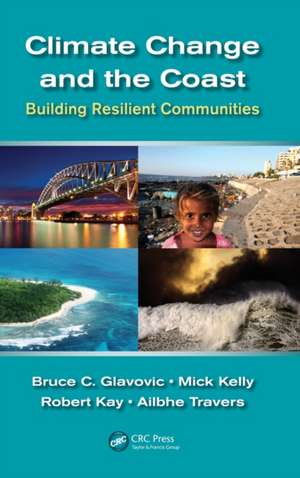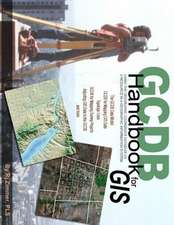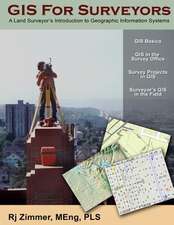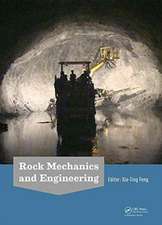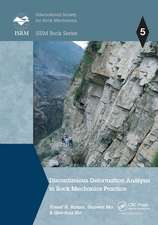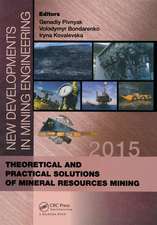Climate Change and the Coast: Building Resilient Communities
Editat de Bruce Glavovic, Mick Kelly, Robert Kay, Ailbhe Traversen Limba Engleză Hardback – 30 ian 2015
Telling the stories of real-world communities in a wide range of coastal settings, including America’s Gulf of Mexico coast, Britain, Australia, New Zealand, The Maldives, southern Africa, Bangladesh, and Vietnam, the case studies in Climate Change and the Coast: Building Resilient Communities reveal a rich diversity of adaptation approaches.
A number of common themes emerge that indicate opportunities, barriers, and on-ground realities for progressing adaptation at the coast. Together, they highlight the need to consciously reflect on current circumstances, contemplate future prospects, and deliberately choose pathways that are attuned to the changing circumstances climate change will bring to coastal regions. This process is termed "reflexive adaptation," capturing the principle of critical self-reflection and self-correction in the face of adversity, uncertainty, surprise, and contestation.
- Provides practical advice for adapting to climate change based on case studies written by leading specialists with firsthand experience in real-world communities in diverse coastal settings around the globe
- Integrates insights from research and practice in an accessible way so that coastal communities can plan proactively for a future shaped by climate change
- Explains how climate change compounds pervasive unsustainable practices in coasts around the world
- Explores how coastal governance and adaptation theory and practices have evolved
- Details the barriers and opportunities for adapting to climate change
| Toate formatele și edițiile | Preț | Express |
|---|---|---|
| Paperback (1) | 455.95 lei 6-8 săpt. | |
| CRC Press – 12 dec 2019 | 455.95 lei 6-8 săpt. | |
| Hardback (1) | 1137.27 lei 6-8 săpt. | |
| CRC Press – 30 ian 2015 | 1137.27 lei 6-8 săpt. |
Preț: 1137.27 lei
Preț vechi: 1386.90 lei
-18% Nou
Puncte Express: 1706
Preț estimativ în valută:
217.65€ • 224.54$ • 184.20£
217.65€ • 224.54$ • 184.20£
Carte tipărită la comandă
Livrare economică 05-19 martie
Preluare comenzi: 021 569.72.76
Specificații
ISBN-13: 9780415464871
ISBN-10: 0415464870
Pagini: 596
Ilustrații: 91 black & white illustrations, 45 black & white tables
Dimensiuni: 156 x 234 x 34 mm
Greutate: 1.26 kg
Ediția:1
Editura: CRC Press
Colecția CRC Press
Locul publicării:Boca Raton, United States
ISBN-10: 0415464870
Pagini: 596
Ilustrații: 91 black & white illustrations, 45 black & white tables
Dimensiuni: 156 x 234 x 34 mm
Greutate: 1.26 kg
Ediția:1
Editura: CRC Press
Colecția CRC Press
Locul publicării:Boca Raton, United States
Public țintă
Postgraduate and ProfessionalCuprins
Part I. Coastal communities and the climate change imperative. Introduction. Climate drivers in the coastal zone. On the frontline in the Anthropocene: Adapting to climate change through deliberative coastal governance. Part II. Climate change and the coastal zone: North America. Social-ecological change in Canada’s Arctic: Coping, adapting, and learning for an uncertain future. Climate change and infrastructure adaptation in coastal New York City. Crisis on the delta: emerging trajectories for New Orleans. Part III. Climate change and the coastal zone: South and Southeast Asia. Building resilient coastal communities by enabling participatory action: A case study from India. Climate adaptation technologies in agriculture and water supply and sanitation practice in the coastal region of Bangladesh. Coastal zone management and climate policy in Vietnam. A climate for change: A comparative analysis of climate change adaptation in rapidly urbanizing Australian and Chinese city regions. Part IV. Climate change and the coastal zone: Australasia. The evolution of coastal vulnerability assessments to support adaptive decision-making in Australia: a review. Adapting Australian coastal regions to climate change: a case study of South East Queensland. From coping to resilience: The role of managed retreat in highly developed coastal regions of New Zealand. Part V. Climate change and the coastal zone: Small islands. A tale of two atoll nations: a comparison of risk, resilience, and adaptive response of Kiribati and the Maldives. Planning for coastal change in Caribbean small islands. Part VI. Climate change and the coastal zone: South America. A risk-based and participatory approach to assessing climate vulnerability and improving governance in coastal Uruguay. The promise of coastal management in Brazil in times of global climate change. Part VII. Climate change and the coastal zone: Europe. Toward adaptive management in coastal zones: experience from the eastern coastline of England. Adaptation to change in the North Sea area: Maritime spatial planning as a new planning challenge in times of climate change. Mainstreaming climate change adaptation with existing coastal management for the Mediterranean coastal region. Part VIII. Climate change and the coastal zone: Africa. Climate change and the coastal zone of Mozambique: supporting decision-making for community-based adaptation. Climate change and the coasts of Africa: Durban case study. Part IX. Conclusion and practical steps for adapting to climate change. Toward reflexive adaptation and resilient coastal communities. Reflexive adaptation in practice. In conclusion. References. Index.
Recenzii
"Most of the thousands of books about climate change and coastal impacts have either a thematic focus … or they treat specific areas or regions. This book offers 22 case studies, presented by 50 diverse authors, that represent most oceans and seas of the world. ... Summing up: Highly recommended. General readers; upper-level undergraduates through professionals/practitioners."
—F. T. Manheim, George Mason University, Fairfax, Virginia, USA for CHOICE, November 2015
"This book brings together more than 50 authors to explore challenges and opportunities for building the resilience and sustainability of coastal communities in the face of climate change. Case studies from different regions make it highly relevant to a wide range of scholars and practitioners. The emphasis on practical adaptation strategies and coastal governance is very timely and important."
—Joern Birkmann, United Nations University and IPCC Lead Author
"The book is not prescriptive in its conclusions — it encourages diversity — but it is clear that living with risk will be an increasingly central element of life and development planning on the coast. Planners, students and residents of the coast will value this book for its clarity, comprehensiveness and messages for the livability of future coasts."
— Mark Pelling, King’s College London
"… contains case studies from all major world regions. … The specific focus on coastal adaptation/resilience – as opposed to a general treatment of coastal management (with a minor subtext of climate change) or a generic treatment of adaptation (with maybe one or two coastal examples) is of particular interest to me – and likely many others working in coastal environments. I also appreciate the roles the editors have played in coastal adaptation over the better part of 2-3 decades. It smells like experience, and thus credibility."
— Susanne C. Moser, Susanne Moser Research & Consulting
"This is an important volume that is unique in its breadth of case studies, authoritative authors, and comprehensive coverage of the science and governance of adaptation to climate change on the coast. It is practically focussed, and provides the reader with a wide range examples of adaptation processes from around the world".
— Jon Barnett, School of Geography, The University of Melbourne
—F. T. Manheim, George Mason University, Fairfax, Virginia, USA for CHOICE, November 2015
"This book brings together more than 50 authors to explore challenges and opportunities for building the resilience and sustainability of coastal communities in the face of climate change. Case studies from different regions make it highly relevant to a wide range of scholars and practitioners. The emphasis on practical adaptation strategies and coastal governance is very timely and important."
—Joern Birkmann, United Nations University and IPCC Lead Author
"The book is not prescriptive in its conclusions — it encourages diversity — but it is clear that living with risk will be an increasingly central element of life and development planning on the coast. Planners, students and residents of the coast will value this book for its clarity, comprehensiveness and messages for the livability of future coasts."
— Mark Pelling, King’s College London
"… contains case studies from all major world regions. … The specific focus on coastal adaptation/resilience – as opposed to a general treatment of coastal management (with a minor subtext of climate change) or a generic treatment of adaptation (with maybe one or two coastal examples) is of particular interest to me – and likely many others working in coastal environments. I also appreciate the roles the editors have played in coastal adaptation over the better part of 2-3 decades. It smells like experience, and thus credibility."
— Susanne C. Moser, Susanne Moser Research & Consulting
"This is an important volume that is unique in its breadth of case studies, authoritative authors, and comprehensive coverage of the science and governance of adaptation to climate change on the coast. It is practically focussed, and provides the reader with a wide range examples of adaptation processes from around the world".
— Jon Barnett, School of Geography, The University of Melbourne
Descriere
Telling the stories of real-world communities in diverse coastal settings, this book draws upon the latest research findings from a wide range of disciplines. Case studies are drawn from all around the world and from countries with varying levels of development including America’s Gulf of Mexico coast, Australia, Brazil, Britain, China, New Zealand, The Maldives, South Africa, Bangladesh, and Vietnam. It examines what has succeeded and what has failed around the world, where there are opportunities to be grasped and pitfalls to be avoided.
Notă biografică
Bruce C. Glavovic holds the EQC Chair in Natural Hazards Planning at Massey University, New Zealand. His research explores the role of governance and land-use planning in building resilient and sustainable communities. He has over 25 years of experience in academia, private consulting, and government, mainly in the Republic of South Africa, the United States, and New Zealand. He is currently vice-chair of the Land–Ocean Interactions in the Coastal Zone (LOICZ) Scientific Steering Committee.
Robert C. Kay is principal consultant of Coastal Zone Management Pty (Ltd) and of Adaptive Futures, Claremont, Australia, two niche consulting companies advising governments, communities, and companies worldwide on the challenges posed by climate change impacts. Dr. Kay has 25 years of experience in climate change impact assessment, coastal zone management, and planning through work in government, consulting, and academic sectors. He holds a position of visiting adjunct professor at the Sustainability Research Center at the University of the Sunshine Coast, Australia. He has an honours degree in geology (Wales) and a PhD in environmental science (East Anglia, UK).
Philip Michael (Mick) Kelly is a consultant with Tanelorn Associates based in New Zealand’s winterless north. Having retired from the Climatic Research Unit at the University of East Anglia in the United Kingdom, where he specialized in research on mechanisms of climate change and climate vulnerability, he now manages 69 acres of regenerating bush and is committed to community-based science projects.
Ailbhe Travers is a coastal geomorphologist with over ten years of experience in environmental studies, focusing specifically on the coastal realm. She holds an honours degree in environmental science (University of Ulster) and a PhD in geography and environmental systems engineering at the University of
Robert C. Kay is principal consultant of Coastal Zone Management Pty (Ltd) and of Adaptive Futures, Claremont, Australia, two niche consulting companies advising governments, communities, and companies worldwide on the challenges posed by climate change impacts. Dr. Kay has 25 years of experience in climate change impact assessment, coastal zone management, and planning through work in government, consulting, and academic sectors. He holds a position of visiting adjunct professor at the Sustainability Research Center at the University of the Sunshine Coast, Australia. He has an honours degree in geology (Wales) and a PhD in environmental science (East Anglia, UK).
Philip Michael (Mick) Kelly is a consultant with Tanelorn Associates based in New Zealand’s winterless north. Having retired from the Climatic Research Unit at the University of East Anglia in the United Kingdom, where he specialized in research on mechanisms of climate change and climate vulnerability, he now manages 69 acres of regenerating bush and is committed to community-based science projects.
Ailbhe Travers is a coastal geomorphologist with over ten years of experience in environmental studies, focusing specifically on the coastal realm. She holds an honours degree in environmental science (University of Ulster) and a PhD in geography and environmental systems engineering at the University of
